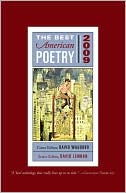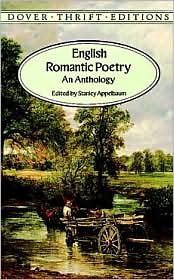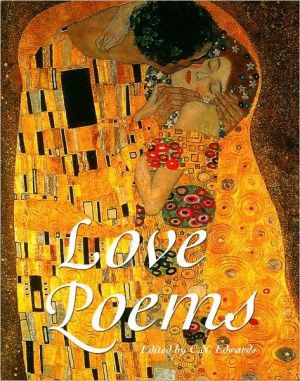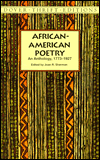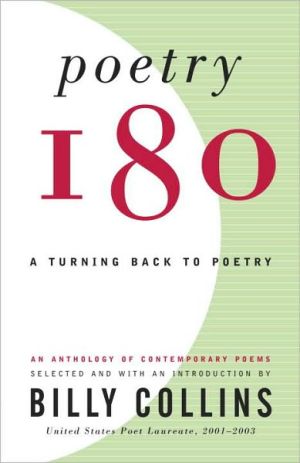The Yale Anthology of Twentieth-Century French Poetry
Not since the publication of Paul Auster's The Random House Book of 20th Century French Poetry (1984) has there been a significant and widely read anthology of modern French poetry in the English-speaking world. Here for the first time is a comprehensive bilingual representation of French poetic achievement in the twentieth century, from the turn-of-the-century poetry of Guillaume Apollinaire to the high modernist art of Samuel Beckett to the contemporary verse of scourge Michel Houellebecq....
Search in google:
"A monumental work that will serve as a point of reference for contemporary French studies for years to come. Reaching beyond canonical works and authors, it runs through culture at large with force and elegance. It will change the course of French studies."-Tom Conley, Harvard UniversityAuthor Biography: Mary Ann Caws is Distinguished Professor of English, French, and Comparative Literature at the Graduate School, City University of New York. She is the author and editor of many books, including Écritures de femmes, published by Yale University Press, and Marcel Proust (Overlook Illustrated Lives).
The Yale Anthology of Twentieth-Century French Poetry\ \ Yale University Press\ Copyright © 2004 Yale University\ All right reserved.\ ISBN: 978-0-300-10010-5 \ \ \ Chapter One\ 1897-1915: Symbolism, Post-Symbolism, Cubism, Simultanism \ Guillaume Apollinaire, Blaise Cendrars, Paul Claudel, Jean Cocteau, Léon-Paul Fargue, Max Jacob, Pierre-Jean Jouve, Valéry Larbaud, Saint-John Perse, Pablo Picasso, Catherine Pozzi, Pierre Reverdy, Saint-Pol Roux, Victor Segalen, Jules Supervielle, Paul Valéry, Renée Vivien\ Martyred at the hands of the Nazis, Saint-Pol Roux is the great transitional figure in early twentieth-century French poetry. He and Paul Claudel, seven years his senior, represent the ongoing heritage from the great ur-Symbolist Stéphane Mallarmé-a heritage that continues with Paul Valéry. The latter is best known for his epic poem "Le Cimetière marin," published here in its entirety in a recent translation by the Irish poet Derek Mahon. Just as Valéry's figure of the rameur, or rower, strains against the current, so the translator struggles with and against the French rhyme; Mahon places equivalent, if nonrhyming, stresses on his own lines. Valéry's "La Fileuse" remains one of the most dicult and impressive manifestations of how form and visuality work together. Grace Schulman's translation, commissioned forthis volume, threads its own understanding through form and vision.\ The wide-reaching poems of Saint-John Perse (Alexis Saint-Léger Léger) stretch from his early Exils through the classic recall of Anabase to the triumph of Amers, a title that suggests both the sea (mer) and bitter memory (amer)-Seamarks is Wallace Fowlie's ingenious English title. The poetry of Perse calls to mind Paul Claudel's biblically toned versets, whose length is based on the rhythm of the human breath. Claudel interweaves prose and poetry in his longer poems (and in his poetic plays), all of which are unmistakably lofty in style and conception. On the other hand, no one could fail to recognize the powerful simplicity that characterizes his prose poetry in Connaissance de l'Est (The East I Know). These last brief poems, written when Claudel was the French ambassador to China, remain striking examples of the prose poem: they are unforgettable, inimitable.\ Another extraordinary adventurer into China in the early part of the century was Victor Segalen, doctor, essayist, and poet. The hieratic prose poems collected in Stèles (Stelae) are a haunting presence, at once exotic and strangely familiar. As one commentator has noted, "Epigraph and carved stone, the stele stands there, body and soul, a complete being ... this hard composition, this density, this internal equilibrium and these angles.... Thence the challenge to whomever would have them say what it is they keep. They scorn to be read.... They do not express; they signify; they are." These verbal monuments are not only the records of an eccentric and brilliant traveler to the East but a document of the French expansion of vision in the twentieth century, to China and beyond. The genre of the stela is unique unto itself, celebrating life, death, and the ongoing construction and duration of poetic monuments.\ No twentieth-century French poet is more beloved than the immensely appealing Guillaume Apollinaire. As someone once remarked to me, Apollinaire, almost alone among poets, has left a legacy of congeniality, not only in his time but in ours. Learned "Apollinaire specialists" from around the world collectively celebrate the poet who died of a shrapnel wound just as World War I was ending. ("A bas Guillaume," people shouted in the streets; they, of course, meant the emperor, not Apollinaire.) An elegy to him by Tristan Tzara, founder of the Dada movement, is an unforgettable lament. In Apollinaire's work on the Cubist poets and painters, such as Pablo Picasso, he created an atmosphere conducive to poetic thought and visuality and to the forms of modernism saluted in his epic "Zone," at once nostalgic and forward-looking, combining the cosmic and the local, the airplane and the newspaper.\ Blaise Cendrars-whose adopted name suggests the embers (la braise) and ashes (les cendres) of inner conflagration, of self-immolation, as only the first step toward re-creation of the self-is a poet of tremendous influence whose contagious enthusiasm endures. Above all else, Cendrars was fascinated with the multiform elements of the modern: "Profound today," the title of one of his essays, might sum up his poetic achievement. His passion for real and imagined travel ("Prose du Transsibérien et de la petite Jeanne de France," this long, superb travel poem called "Prosa," after the religious form, as in Prose pour les morts) and his hypnotic, emotional power had a decided influence not only on Apollinaire but on English-language poets as well, from the Beats on. The interrelations of prose and poetry are always to be reinvented and rethought. Particularly in the early years of the century, the interrelating of genres provokes a special excitement.\ Guillaume Apollinaire (Guillaume Apollinaris de Kostrowitzky) 1880-1918 ROME, ITALY\ Apollinaire came to the forefront of the modern age through both his poetry and his spirit of invention, serving as a sounding board for many new ideas of his time. He continues to feel among the freshest of contemporary poets. He is credited with publicizing Cubism as a movement, coining the term surrealism, which he applied to his play Les Mamelles de Tirésias, and inventing the "conversation poem"-for example, a collage of remarks overheard in a bar or a bus. Born in Rome to a Polish mother and Italian father, Apollinaire sometimes claimed he was the Pope's son. He was extremely gregarious and, after moving to Paris at the age of twenty, had friends among painters and writers such as Picasso, André Derain, Marie Laurencin, and Alfred Jarry. Principal works: Alcools: Poèmes, 1898-1913, 1913; Calligrammes: Poèmes de la paix et de la guerre, 1913-1916, 1918; Il y a, 1925; L'Esprit nouveau et les poètes, 1946; Ombre de mon amour (poèmes à Lou), 1947.\ Zone A la fin tu es las de ce monde ancien Bergère ô tour Eiffel le troupeau des ponts bêle ce matin Tu en as assez de vivre dans l'antiquité grecque et romaine Ici même les automobiles ont l'air d'être anciennes La religion seule est restée toute neuve la religion Est restée simple comme les hangars de Port-Aviation Seul en Europe tu n'es pas antique ô Christianisme L'Européen le plus moderne c'est vous Pape Pie X Et toi que les fenêtres observent la honte te retient D'entrer dans une église et de t'y confesser ce matin Tu lis les prospectus les catalogues les aches qui chantent tout haut Voilà la poésie ce matin et pour la prose il y a les journaux Il y a les livraisons à 25 centimes pleines d'aventures policières Portraits des grands hommes et mille titres divers J'ai vu ce matin une jolie rue dont j'ai oublié le nom Neuve et propre du soleil elle était le clairon Les directeurs les ouvriers et les belles sténo-dactylographes Du lundi matin au samedi soir quatre fois par jour y passent Le matin par trois fois la sirène y gémit Une cloche rageuse y aboie vers midi Les inscriptions des enseignes et des murailles Les plaques les avis à la façon des perroquets criaillent J'aime la grâce de cette rue industrielle Située à Paris entre la rue Aumont-Thiéville et l'avenue des Ternes Voilà la jeune rue et tu n'es encore qu'un petit enfant Ta mère ne t'habille que de bleu et de blanc Tu es très pieux et avec le plus ancien de tes camarades René Dalize Vous n'aimez rien tant que les pompes de l'Église Il est neuf heures le gaz est baissé tout bleu vous sortez du dortoir en cachette Vous priez toute la nuit dans la chapelle du collège Tandis qu'éternelle et adorable profondeur améthyste Tourne à jamais la flamboyante gloire du Christ C'est le beau lys que tous nous cultivons C'est la torche aux cheveux roux que n'éteint pas le vent C'est le fils pâle et vermeil de la douloureuse mère C'est l'arbre toujours touu de toutes les prières C'est la double potence de l'honneur et de l'éternité C'est l'étoile à six branches C'est Dieu qui meurt le vendredi et ressuscite le dimanche C'est le Christ qui monte au ciel mieux que les aviateurs Il détient le record du monde pour la hauteur Pupille Christ de l'oeil Vingtième pupille des siècles il sait y faire Et changé en oiseau ce siècle comme Jésus monte dans l'air Les diables dans les abîmes lèvent la tête pour le regarder Ils disent qu'il imite Simon Mage en Judée Ils crient s'il sait voler qu'on l'appelle voleur Les anges voltigent autour du joli voltigeur Icare Enoch Elie Apollonius de Thyane Flottent autour du premier aéroplane Ils s'écartent parfois pour laisser passer ceux que transporte la Sainte-Eucharistie Ces prêtres qui montent éternellement en élevant l'hostie L'avion se pose enfin sans refermer les ailes Le ciel s'emplit alors de millions d'hirondelles A tire-d'aile viennent les corbeaux les faucons les hiboux D'Afrique arrivent les ibis les flamands les marabouts L'oiseau Roc célébré par les conteurs et les poètes Plane tenant dans les serres le crâne d'Adam la première tête L'aigle fond de l'horizon en poussant un grand cri Et d'Amérique vient le petit colibri De Chine sont venus les pihis longs et souples Qui n'ont qu'une seule aile et qui volent par couples Puis voici la colombe esprit immaculé Qu'escortent l'oiseau-lyre et le paon ocellé Le phénix ce bûcher qui soi-même s'engendre Un instant voile tout de son ardente cendre Les sirènes laissant les périlleux détroits Arrivent en chantant bellement toutes trois Et tous aigle phénix et pihis de la Chine Fraternisent avec la volante machine Maintenant tu marches dans Paris tout seul parmi la foule Des troupeaux d'autobus mugissants près de toi roulent L'angoisse de l'amour te serre le gosier Comme si tu ne devais jamais plus être aimé Si tu vivais dans l'ancien temps tu entrerais dans un monastère Vous avez honte quand vous vous surprenez à dire une prière Tu te moques de toi et comme le feu de l'Enfer ton rire pétille Les étincelles de ton rire dorent le fonds de ta vie C'est un tableau pendu dans un sombre musée Et quelquefois tu vas le regarder de près\ Aujourd'hui tu marches dans Paris les femmes sont ensanglantées C'était et je voudrais ne pas m'en souvenir c'était au déclin de la beauté\ Entourée de flammes ferventes Notre-Dame m'a regardé à Chartres Le sang de votre Sacré-Coeur m'a inondé à Montmartre Je suis malade d'ouïr les paroles bienheureuses L'amour dont je soure est une maladie honteuse Et l'image qui te possède te fait survivre dans l'insomnie et dans l'angoisse C'est toujours près de toi cette image qui passe\ Maintenant tu es au bord de la Méditerranée Sous les citronniers qui sont en fleur toute l'année Avec tes amis tu te promènes en barque L'un est Nissard il y a un Mentonasque et deux Turbiasques Nous regardons avec eroi les poulpes des profondeurs Et parmi les algues nagent les poissons images du Sauveur Tu es dans le jardin d'une auberge aux environs de Prague Tu te sens tout heureux une rose est sur la table Et tu observes au lieu d'écrire ton conte en prose La cétoine qui dort dans le coeur de la rose\ Epouvanté tu te vois dessiné dans les agates de Saint-Vit Tu étais triste à mourir le jour où tu t'y vis Tu ressembles au Lazare aolé par le jour Les aiguilles de l'horloge du quartier juif vont à rebours Et tu recules aussi dans ta vie lentement En montant au Hradchin et le soir en écoutant Dans les tavernes chanter des chansons tchèques\ Te voici à Marseille au milieu des pastèques\ Te voici à Coblence à l'hôtel du Géant\ Te voici à Rome assis sous un néflier du Japon\ Te voici à Amsterdam avec une jeune fille que tu trouves belle et qui est laide Elle doit se marier avec un éudiant de Leyde On y loue des chambres en latin Cubicula locanda Je m'en souviens j'y ai passé trois jours et autant à Gouda Tu es à Paris chez le juge d'instruction Comme un criminel on te met en état d'arrestation Tu as fait de douloureux et de joyeux voyages Avant de t'apercevoir du mensonge et de l'âge Tu as souvert de l'amour à vingt et à trente ans J'ai vécu comme un fou et j'ai perdu mon temps Tu n'oses plus regarder tes mains et à tous moments je voudrais sangloter Sur toi sur celle que j'aime sur tout ce qui t'a épuvanté Tu regardes les yeux pleins de larmes ces pauvres émigrants Ils croient en Dieu ils prient les femmes allaitent des enfants Ils emplissent de leur odeur le hall de la gare Saint-Lazare Ils ont foi dans leur ?oile comme les rois-mages Ils espérent gagner de l'argent dans l'Argentine Et revenir dans leur pays aprés avoir fait fortune Une famille transporte un éredon rouge comme vous transportez votre coeur Cet édredon et nos réves sont aussi irréels Quelques-uns de ces émigrants restent ici et se logent Rue des Rosiers ou rue des Éouves dans des bouges Je les ai vus souvent le soir ils prennent l'air dans la rue Et se déplacent rarement comme les pièces aux échecs Il y a surtout des Juifs leurs femmes portent perruque Elles restent assises exsangues au fond des boutiques Tu es debout devant le zinc d'un bar crapuleux Tu prends un café à deux sous parmi les malheureux Tu es la nuit dans un grand restaurant Ces femmes ne sont pas méhantes elles ont des soucis cependant Toutes même la plus laide a fait souvrir son amant Elle est la fille d'un sergent de ville de Jersey Ses mains que je n'avais pas vues sont dures et gercées J'ai une pitié immense pour les coutures de son ventre J'humilie maintenant à une pauvre fille au rire horrible ma bouche Tu es seul le matin va venir Les laitiers font tinter leurs bidons dans les rues La nuit s'éloigne ainsi qu'une belle M?ive C'est Ferdine la fausse ou Léa l'attentive Et tu bois cet alcool br?ant comme ta vie Ta vie que tu bois comme une eau-de-vie Tu marches vers Auteuil tu veux aller chez toi à pied Dormir parmi tes f?iches d'Oc?nie et de Guinée Ils sont des Christ d'une autre forme et d'une autre croyance Ce sont les Christ inf?ieurs des obscures esp?ances Adieu Adieu Soleil cou coupé\ Zone You are tired at last of this old world O shepherd Eiffel Tower the flock of bridges bleats at the morning You have had enough of life in this Greek and Roman antiquity Even the automobiles here seem to be ancient Religion alone has remained entirely fresh religion Has remained simple like the hangars at the airfield You alone in all Europe are not antique O Christian faith The most modern European is you Pope Pius X And you whom the windows look down at shame prevents you From entering a church and confessing this morning You read prospectuses catalogues and posters which shout aloud Here is poetry this morning and for prose there are the newspapers There are volumes for 25 centimes full of detective stories Portraits of famous men and a thousand assorted titles This morning I saw a pretty street whose name I have forgotten Shining and clean it was the sun's bugle Executives and workers and lovely secretaries From Monday morning to Saturday evening pass here four times a day In the morning the siren wails three times A surly bell barks around noon Lettering on signs and walls Announcements and billboards shriek like parrots I love the charm of this industrial street Located in Paris somewhere between the rue Aumont-Thiéville and the avenue des Ternes Here is the young street and you are once again a little child Your mother dresses you only in blue and white You are very pious and with your oldest friend René Dalize You like nothing so well as the ceremonies of church It is nine o'clock the gas is down to the blue you come secretly out of the dormitory You pray the whole night in the college chapel While eternal and adorable an amethyst profundity The flaming glory of Christ turns for ever It is the beautiful lily we all cultivate It is the red-headed torch which the wind cannot blow out It is the pale and ruddy son of a sorrowful mother It is the tree always thick with prayers It is the double gallows of honor and of eternity It is a six-pointed star It is God who died on Friday and rose again on Sunday It is Christ who soars in the sky better than any aviator He breaks the world's altitude record Christ the pupil of the eye Twentieth pupil of the centuries he knows how And turned into a bird this century rises in the air like Jesus The devils in their abysses lift their heads to look at it They say it is imitating Simon Magus in Judea They shout that if it knows how to fly it should be called a flyer Angels hover about the lovely aerialist Icarus Enoch Elijah Apollonius of Tyana Flutter around the original airplane They separate occasionally to give passage to those whom the Holy Eucharist carries up Those priests who rise eternally in lifting the host The airplane lands at last without folding its wings The sky fills up then with millions of swallows In a flash crows falcons and owls arrive Ibis flamingoes and marabous arrive from Africa The great Roc celebrated by story tellers and poets Glides down holding in its claws Adam's skull the first head The eagle rushes out of the horizon giving a great cry From America comes the tiny humming-bird From China have come long supple pihis Which only have one wing and fly tandem Then the dove immaculate spirit Escorted by the lyre bird and the ocellated peacock The phoenix that pyre which recreates itself Veils everything for an instant with its glowing coals Sirens leaving their perilous straits Arrive all three of them singing beautifully And everything eagle phoenix and Chinese pihis Fraternize with the flying machine Now you walk through Paris all alone in the crowd Herds of bellowing busses roll by near you The agony of love tightens your throat\ As if you could never be loved again If you were living in olden days you would enter a monastery You are ashamed when you catch yourself saying a prayer You ridicule yourself and your laughter bursts out like hell fire The sparks of your laughter gild the depths of your life It is a picture hung in a somber museum And sometimes you go to look at it closely Today you walk through Paris the women are blood-stained It was and I would prefer not to remember it was during beauty's decline Surrounded by fervent flames Notre Dame looked at me in Chartres The blood of your Sacred Heart flooded me in the Montmartre I am ill from hearing happy words The love from which I suffer is a shameful sickness And the image which possesses you makes you survive in sleeplessness and anguish It is always near you this passing image Now you are on the shore of the Mediterranean Under the lemon trees which blossom all year With your friends you take a boat ride One from Nice one from Menton and two from Turbie We look down in fear at the octopodes on the bottom And amid the algae swim fish images of our Saviour You are in the garden of an inn on the outskirts of Prague You feel completely happy a rose is on the table And instead of writing your story in prose you watch The rosebug which is sleeping in the heart of the rose Astonished you see yourself outlined in the agates of St. Vitus You were sad enough to die the day you saw yourself in them You looked like Lazarus bewildered by the light The hands of the clock in the Jewish quarter turn backwards And you go slowly backwards in your life Climbing up to Hradchin and listening at night In taverns to the singing of Czech songs Here you are in Marseilles amid the watermelons Here you are in Coblenz at the Hotel of the Giant Here you are in Rome sitting under a Japanese medlar tree Here you are in Amsterdam with a girl you find pretty and who is ugly She is to marry a student from Leyden There are rooms for rent in Latin Cubicula locanda I remember I stayed three days there and as many at Gouda You are in Paris at the juge d'instruction Like a criminal you are placed under arrest You have made sorrowful and happy trips Before noticing that the world lies and grows old You suvered from love at twenty and thirty I have lived like a fool and wasted my time You no longer dare look at your hands and at every moment I want to burst out sobbing For you for her I love for everything that has frightened you With tear-filled eyes you look at those poor emigrants They believe in God they pray the women nurse their children Their odor fills the waiting room of the gare Saint-Lazare They have faith in their star like the Magi They hope to make money in Argentina And come back to their countries having made their fortunes One family carries a red quilt as one carries one's heart That quilt and our dream are both unreal Some of these emigrants stay here and find lodging In hovels in the rue des Rosiers or the rue des Éouffes I have often seen them in the evening they take a stroll in the street And rarely travel far like men on a checker board They are mostly Jews their wives wear wigs They sit bloodlessly in the backs of little shops You are standing at the counter of a dirty bar You have a cheap coffee with the rest of the riffraff At night you are in a big restaurant These women are not wicked still they have their worries All of them even the ugliest has made her lover suffer She is the daughter of a policeman on the Isle of Jersey Her hands which I have not seen are hard and chapped I have an immense pity for the scars on her belly I humble my mouth by offering it to a poor slut with a horrible laugh You are alone the morning is almost here The milkmen rattle their cans in the street The night departs like a beautiful half-caste False Ferdine or waiting Leah And you drink this burning liquor like your life Your life which you drink like an eau-de-vie You walk toward Auteuil you want to walk home on foot To sleep among your fetishes from Oceania and Guinea They are all Christ in another form and of another faith They are inferior Christs obscure hopes Adieu adieu The sun a severed neck\ -ROGER SHATTUCK\ (Continues...)\ \ \ \ \ Excerpted from The Yale Anthology of Twentieth-Century French Poetry Copyright © 2004 by Yale University. Excerpted by permission.\ All rights reserved. No part of this excerpt may be reproduced or reprinted without permission in writing from the publisher.\ Excerpts are provided by Dial-A-Book Inc. solely for the personal use of visitors to this web site. \ \
Contents Editor's Note....................xxiiiIntroduction by Mary Ann Caws....................xxv1. 1897-1915: Symbolism, Post-Symbolism, Cubism, Simultanism Guillaume Apollinaire (Guillaume Apollinaris de Kostrowitzky) Blaise Cendrars (Frederick Louis Sauser) Paul Claudel Jean Cocteau Léon-Paul Fargue Max Jacob Pierre-Jean Jouve Valéry Larbaud Saint-John Perse (Alexis Saint-Léger Léger) Pablo Picasso Catherine Pozzi Pierre Reverdy Saint-Pol Roux (Pierre-Paul Roux) Victor Segalen Jules Supervielle Paul Valéry Renée Vivien (Pauline Tarn) 2. 1916-1930: Dada and the Heroic Period of Surrealism Louis Aragon Antonin Artaud Le Pèse-nerfs (extraits) / The Nerve Meter (mary ann caws and Georges Bataille Samuel Beckett André Breton Claude Cahun (Lucy Schwob) Malcolm de Chazal Robert Desnos Paul Éluard (Eugène Grindel) Jean Follain Éclogue / Eclogue (stephen romer) 180 Greta Knutson Michel Leiris Henri Michaux Benjamin Péret Francis Ponge Jacques Prévert Raymond Queneau Léopold Sédar Senghor Philippe Soupault Jean Tardieu Tristan Tzara (Sami Rosenstock) Marguerite Yourcenar (Marguerite Antoinette Jeanne Marie Ghislaine Cleenewerke de Crayencour) 3. 1931-1945: Prewar and War Poetry Claude de Burine Aimé Césaire René Char Andrée Chédid Léon-Gontran Damas Renè Daumal Michel Deguy René Depestre Mohammed Dib Louis-René des Forêts André Frénaud Jean Grosjean Eugène Guillevic Anne Hébert Radovan Ivsic Edmond Jabès Pierre-Albert Jourdan Gherasim Luca Dora Maar (HenrietteTheodora Markovitch) Joyce Mansour Meret Oppenheim (Elizabeth Oppenheim) Valentine Penrose Gisèle Prassinos Boris Vian 4. 1946-1966: The Death of André Breton, the Beginning of L'Éphémère Yves Bonnefoy André du Bouchet Bernard Collin Jacques Dupin Jacques Garelli Lorand Gaspar Édouard Glissant Philippe Jaccottet Claire Lejeune Claire Malroux Robert Marteau Abdelwahab Meddeb Gaston Miron Bernard Noël Anne Perrier Anne Portugal Jacques Réda Jude Stéfan Salah Stétié 5. 1967-1980: The Explosion of the Next Generation Anne-Marie Albiach Marie-Claire Bancquart Silvia Baron Supervielle Martine Broda Nicole Brossard Danielle Collobert Claude Esteban Marie Étienne Dominique Fourcade Michelle Grangaud Emmanuel Hocquard Hédi Kaddour Vénus Khoury-Ghata Abdellatif Laâbi Annie Le Brun Marcelin Pleynet Jacqueline Risset Jacques Roubaud Paul de Roux Claude Royet-Journoud Habib Tengour Franck Venaille 6. 1981-2002: Young Poetry at the End of the Millennium Pierre Alféri Tahar Bekri Olivier Cadiot Jean Frémon Liliane Giraudon Guy Goette Michel Houellebecq Franck André Jamme Jean-Michel Maulpoix Robert Melançon Pascalle Monnier Nathalie Quintane Valérie-Catherine Richez Amina Saïd Christophe Tarkos André Velter Select Bibliography....................613Acknowledgments....................617Index of Poets....................639Index of Titles....................641Index of Translators....................645


